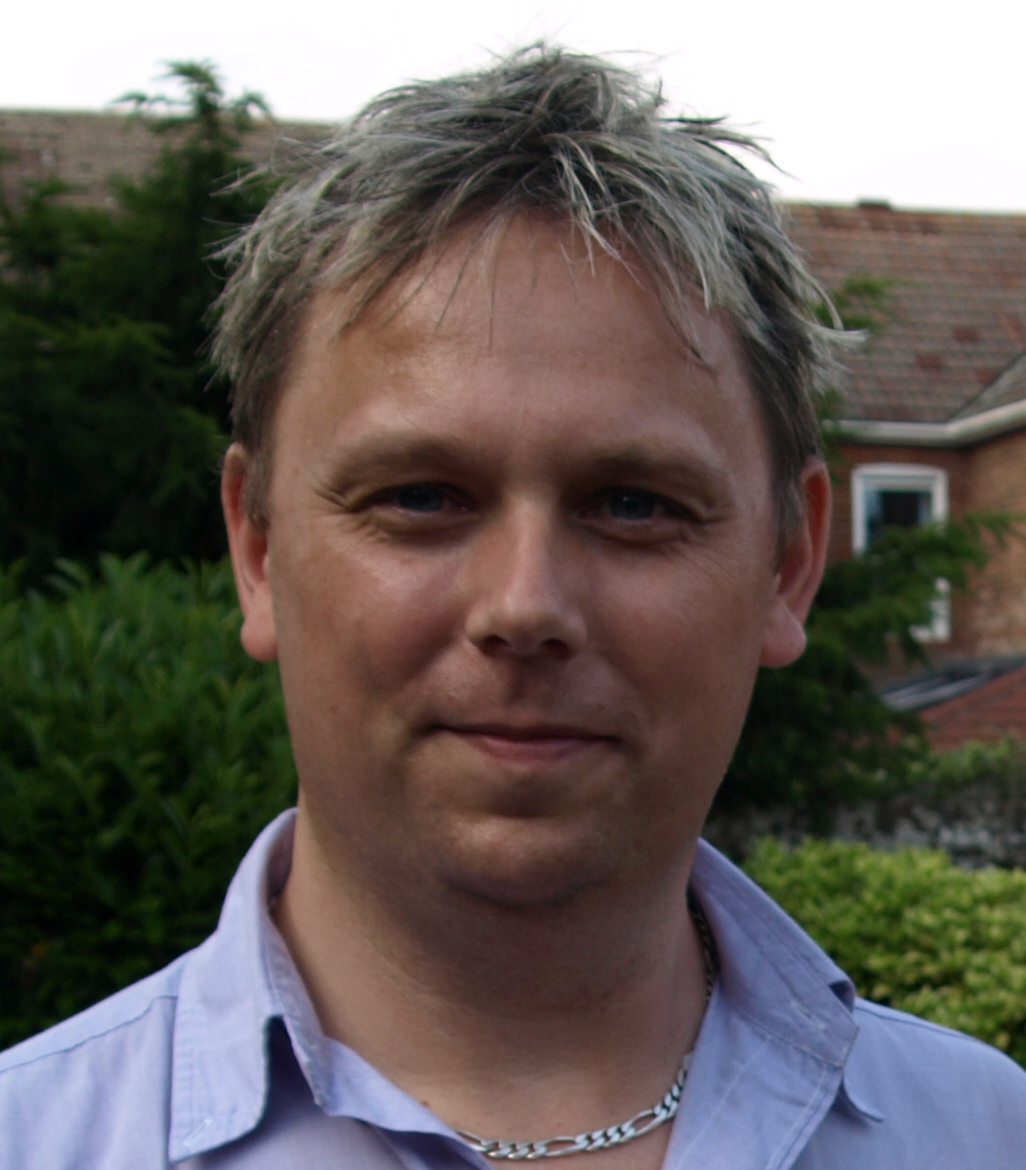 Andy Pope is a Ph.D. student at the University of Portsmouth researching the role of contemporary British film within the wider cultural recycling of the 1980s, with particular regard to the correlation between authorship, creative agency and personal memory. He also teaches part-time at the university, continues with his day job and occasionally has a social life. He can be contacted via email.
Andy Pope is a Ph.D. student at the University of Portsmouth researching the role of contemporary British film within the wider cultural recycling of the 1980s, with particular regard to the correlation between authorship, creative agency and personal memory. He also teaches part-time at the university, continues with his day job and occasionally has a social life. He can be contacted via email.
No Money, No Social Life, Great Future: Confessions of a Part-Time, Mature, Self-Funded Ph.D. Candidate
It is only with the benefit of hindsight, I suppose, that I realise how unprepared I was for the rigours of postgraduate study. Now I am almost two-thirds of the way through my part-time doctoral research, I do occasionally allow myself a touch of hubris and consider the achievement of getting this far whilst holding down a demanding full-time job, relying on financial and emotional family support and applying myself fully to the Ph.D.
 It was always going to be difficult and, for me, that was part of the point. I was in my late 30s, on a new second marriage with a teenage daughter and two teenage step-daughters when I decided I wanted to do a degree course in Film Studies. Spurred on by my idealistic wife who wanted to harness my visible passion for my subject and was determined that my protestations of financial, intellectual and domestic constraints could be overcome, I embarked first on an Access course, then a BA. I remember clearly my wife’s encouragement, but even this had its limits: ‘Do this by all means, but don’t ask to do a postgraduate course’, she said. Mindful of the financial and time constraints I had no hesitation in assuring her I had no intention of continuing my studies beyond my BA.
It was always going to be difficult and, for me, that was part of the point. I was in my late 30s, on a new second marriage with a teenage daughter and two teenage step-daughters when I decided I wanted to do a degree course in Film Studies. Spurred on by my idealistic wife who wanted to harness my visible passion for my subject and was determined that my protestations of financial, intellectual and domestic constraints could be overcome, I embarked first on an Access course, then a BA. I remember clearly my wife’s encouragement, but even this had its limits: ‘Do this by all means, but don’t ask to do a postgraduate course’, she said. Mindful of the financial and time constraints I had no hesitation in assuring her I had no intention of continuing my studies beyond my BA.
 Four years, later clutching a hard won first-class degree, I was prepared to forget the stress of those years and, moreover, convince my wife that I wanted to take my studies further. The course had focused my ambitions. I now wanted to teach film, and to do that I needed a Ph.D. But there was more; I loved the study, I enjoyed the writing and the research, but most of all I enjoyed improving myself. Everybody around me saw the passion in my eyes when I spoke of my studies and, despite concerns about the finances, I applied to the University of Portsmouth to embark on a course of doctoral study in 2009.
Four years, later clutching a hard won first-class degree, I was prepared to forget the stress of those years and, moreover, convince my wife that I wanted to take my studies further. The course had focused my ambitions. I now wanted to teach film, and to do that I needed a Ph.D. But there was more; I loved the study, I enjoyed the writing and the research, but most of all I enjoyed improving myself. Everybody around me saw the passion in my eyes when I spoke of my studies and, despite concerns about the finances, I applied to the University of Portsmouth to embark on a course of doctoral study in 2009.
 I now see the number of funding opportunities available to students both through my own university and across the country. This has led to some reflection. I feel a certain level of envy. Why didn’t I have those opportunities? What if I had? Would my experience have been better? Ultimately, I always come to the same conclusion: because of my day job, which is fairly rewarding and moderately well paid, I was tied to part-time study at my local university, but I was very specific about what I wanted to study. Interested in Thatcherism and the 1980s and its legacy within the context of British cinema, I was adamant that my passion wouldn’t be compromised, which meant sticking to my research subject. So, despite some reservations, I know that self-funding was the right thing to do. The cost was reduced by a very helpful alumni discount from the university and, whilst still a hefty chunk of my salary, the fees have been manageable. Though I haven’t sought it, other members of my family recognised the sacrifice I was making and, perhaps living vicariously, have contributed as part of encouraging my ambitions.
I now see the number of funding opportunities available to students both through my own university and across the country. This has led to some reflection. I feel a certain level of envy. Why didn’t I have those opportunities? What if I had? Would my experience have been better? Ultimately, I always come to the same conclusion: because of my day job, which is fairly rewarding and moderately well paid, I was tied to part-time study at my local university, but I was very specific about what I wanted to study. Interested in Thatcherism and the 1980s and its legacy within the context of British cinema, I was adamant that my passion wouldn’t be compromised, which meant sticking to my research subject. So, despite some reservations, I know that self-funding was the right thing to do. The cost was reduced by a very helpful alumni discount from the university and, whilst still a hefty chunk of my salary, the fees have been manageable. Though I haven’t sought it, other members of my family recognised the sacrifice I was making and, perhaps living vicariously, have contributed as part of encouraging my ambitions.
 The last four years have been incredibly hard. The impact on my home and work life has been immeasurable. I have been lucky to have a very accommodating employer who has allowed me to change my working hours, often at short notice, to accommodate my studies. But juggling the Ph.D. and the day job is incredibly difficult. It is not so much the physical space between the disciplines that is problematic. I have always followed the same routine, I work during the week and I study at weekends. The real problem has been the mental space. I envy those who can devote their thoughts 24/7 to their research. I can get into ‘the zone’ at the weekends but then have 5 days when my mind can only stray tangentially into the territory of my research. This has been difficult. Frankly my research is far more interesting than my work, but to do justice to my employer I have had to learn to park those thought processes, which easier said than done. Having said that, it does get easier. I clearly have performed well enough at work, despite distractions, to secure a recent promotion, but with that comes responsibility and it is now more important than ever to delineate my “day job” from my research.
The last four years have been incredibly hard. The impact on my home and work life has been immeasurable. I have been lucky to have a very accommodating employer who has allowed me to change my working hours, often at short notice, to accommodate my studies. But juggling the Ph.D. and the day job is incredibly difficult. It is not so much the physical space between the disciplines that is problematic. I have always followed the same routine, I work during the week and I study at weekends. The real problem has been the mental space. I envy those who can devote their thoughts 24/7 to their research. I can get into ‘the zone’ at the weekends but then have 5 days when my mind can only stray tangentially into the territory of my research. This has been difficult. Frankly my research is far more interesting than my work, but to do justice to my employer I have had to learn to park those thought processes, which easier said than done. Having said that, it does get easier. I clearly have performed well enough at work, despite distractions, to secure a recent promotion, but with that comes responsibility and it is now more important than ever to delineate my “day job” from my research.
 Rightly or not, my guilt around work versus Ph.D. time is far less than that which I feel for my personal relationships, particularly with my family. A second marriage means a lot of introspection – conscious of repeating the mistakes of the past – so it was always important to me to ensure I didn’t neglect my family. I quickly realised this was not an easy proposition, considering the workload I had taken on. Luckily, my wife is hugely supportive, checking my chapters for typos and grammatical mistakes (including this piece) and spending evenings listening to me drone on about my research and theories. Clearly our social life took a backseat for quite some time, but we made a pact that we would always find time for each other. Therefore, Friday and Saturday evenings at the bare minimum were kept free for ‘date nights’. This, together with my realistic time-management, has worked, and as the children have grown they have become accustomed and accepting of my constant typing in the spare bedroom cum study.
Rightly or not, my guilt around work versus Ph.D. time is far less than that which I feel for my personal relationships, particularly with my family. A second marriage means a lot of introspection – conscious of repeating the mistakes of the past – so it was always important to me to ensure I didn’t neglect my family. I quickly realised this was not an easy proposition, considering the workload I had taken on. Luckily, my wife is hugely supportive, checking my chapters for typos and grammatical mistakes (including this piece) and spending evenings listening to me drone on about my research and theories. Clearly our social life took a backseat for quite some time, but we made a pact that we would always find time for each other. Therefore, Friday and Saturday evenings at the bare minimum were kept free for ‘date nights’. This, together with my realistic time-management, has worked, and as the children have grown they have become accustomed and accepting of my constant typing in the spare bedroom cum study.
 There is another aspect I haven’t really touched upon yet. Whilst the first year of my Ph.D. involved both my supervisors and I coming to terms with the rigours of research, the relationship and support between the university and me has evolved in latter years. All concerned soon realised the demands I was under and the level of my commitment. We have adjusted deadlines accordingly, with both my supervisors being enormously supportive, leaving me to work when I need it, but there when I need them to be. This has given me great confidence in my ability to deliver a substantial piece of work.
There is another aspect I haven’t really touched upon yet. Whilst the first year of my Ph.D. involved both my supervisors and I coming to terms with the rigours of research, the relationship and support between the university and me has evolved in latter years. All concerned soon realised the demands I was under and the level of my commitment. We have adjusted deadlines accordingly, with both my supervisors being enormously supportive, leaving me to work when I need it, but there when I need them to be. This has given me great confidence in my ability to deliver a substantial piece of work.
By the time I finish my studies I will have done ten years of university study in the middle of my life, with all the demands that come with that position. It has been challenging in many respects – financially, emotionally, intellectually – but it has been enormously nourishing, and I wouldn’t change a thing. As my wife tells me in my low moments, and I haven’t really touched on those, hold on to the moment when you are presented with your doctorate. Then we know it’s all been worth it.
So much of this resonates with my experience, I’m 42, and just over ten years of study after working in my own business then having our two sons. I returned to college when they were 3 and 5 and completed two years of Higher qualifications to get to university and then four years completing my MA in History. I too got a first which led to fully funded PhD as a Carnegie Scholar – I had no idea that was where study would take me! Not in the plan! My husband has a demanding job and is often away and all childcare is my ‘full time’ job really – I think you are doing incredibly well and your wife is right, when you have a fabulous graduation day it really dawns on you that you have achieved an enormous amount, my friends and family have been amazing although it changes how some people regard you when you shift to academic life. I think those of us with so many other commitments actually learn to radically prioritise and manage our time which makes us very efficient. I’m in the post doc phase now, scratching around for teaching, making endless applications and networking like hell! It’s great fun actually but still constraints – my sons schooling, not being able to move, my husband’s work- all mean my choices can be limited. Being funded was a real decision maker and I really admire your determination to make your PhD happen. I think my kids should write a blog on how they think this has impacted on them! I think it’s been a really positive experience for us – I know some relationships can’t survive the changes- but my boys are aware of other kids parents- whether they work full time, part time, stay at home but none of them seem to do what I do! Now everyone’s waiting on me landing a job, no pressure! I’m still glad I’ve done it all and your writing reinforces that, keep going.
This really resonates with me as, like you, I worked full time and studied part time, whilst also bringing up a family. It isn’t easy; even those weekends when you have carved out your study time can sometimes be compromised, as other commitments encroach on that precious space. I’ve just finished my PhD – my own piece on just this topic is elsewhere on this site – so I hope that will encourage you in those times when it can feel overwhelming and never-ending. I wish you luck for the remainder of your study.